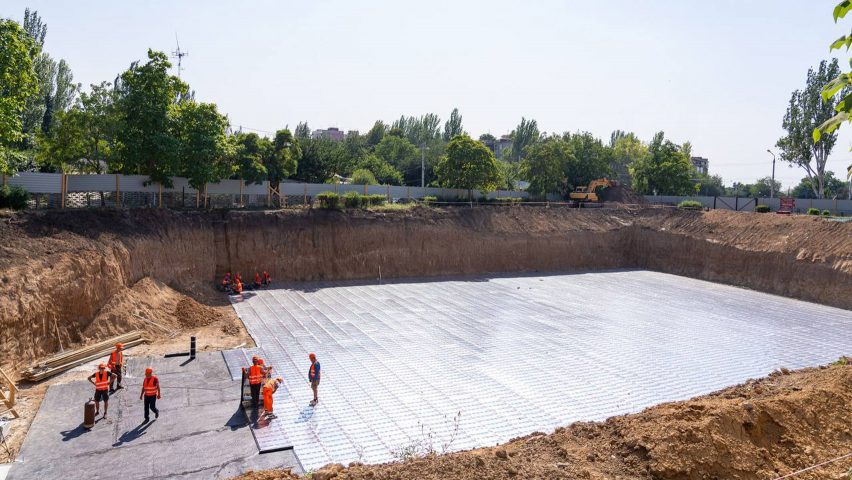
Underground schools "to create safe conditions" for children in Ukraine
Construction is underway on ten underground schools in the Zaporizhzhia region in southeast Ukraine, designed to protect thousands of children against Russian air raids.
Local authorities in Zaporizhzhia are creating bunkers to provide safe in-person learning facilities for children living through the war that was triggered by Russia's full-scale invasion in February 2022.
The goal is to accommodate nearly 45,000 students by the end of 2024, according to the Ukrainian broadcaster Suspilne.
Region needs "to build approximately 20 schools"
Head of the Zaporizhzhia Oblast Military Administration, Ivan Fedorov, said construction work is currently underway on six of the ten schools in the oblast.
"We're doing everything to create safe conditions for the educational process in Zaporizhzhia, despite the difficulties and challenges," Fedorov stated.
Repairs are also currently underway on 20 existing underground shelters at schools in the region.
However, Fedorov says more are still needed.
"In order to cover the needs of the region, we need to build approximately 20 schools," explained Fedorov.
"But the plans are limited by several factors: time, money and a sufficient number of contractors who are ready to perform the work. We expect that by the end of the year, approximately 10 will be built."
Russian missiles continue to strike Ukraine today, more than two years after the invasion began.
According to Ukraine's Deputy Minister of Education, one in seven schools in the country is currently damaged as a result of the war, with many forced to take their teaching online.
Non-governmental organisation Human Rights Watch has said this had "put Ukraine's education system under enormous strain".
The underground schools are required in Zaporizhzhia – home to Europe's largest nuclear power plant seized by Russian forces in May 2022 – as it is one of the most significant zones of conflict.
"These are not just concrete walls"
According to Fedorov, the underground schools are being designed to feel welcoming for children, filled with desks, furniture and blackboards.
"These are not just concrete walls," he said. "It will be a real educational space underground, where children will want to go."
One of the ten shelters is being built on the site of an existing education facility in Zaporizhzhia named School No.88, which did not previously have anywhere for students to study safely in person.
Set to complete this autumn with space for 500 pupils, it will be nestled seven metres below ground and designed to double as a 1,500-square-metre nuclear shelter.
According to the news network Euronews, the school's principal Liudmyla Zlatova said "the parents reacted very well" to the plans.
"Our school is the only one in such a single neighbourhood, there is no other alternative for children to go to," Zlatova said.
A mother of one of the children currently learning online with School Number 88 said the students were also "happy" at the prospect of beginning in-person learning again.
"We were very happy and the kids were happy, they miss live communication," said mother Liubov Pashina.
"Nowadays, the children's eyesight is deteriorating because they are constantly sitting at the computer and their eyes do not rest."
The underground schools in Zaporizhzhia are not the first to have been built in Ukraine following the Russian invasion. A number have already been built in metro stations throughout Kharkiv.
According to Ukrainian newspaper Euromaidan Press, the country is also building underground maternity wards to ensure safe delivery of babies.
Elsewhere in Ukraine, the United Nations High Commissioner for Refugees is working to help rebuild homes in the country that have been damaged by Russian attacks. In a recent interview with Dezeen, project lead Richard Evans said the goal is to build them back to a better standard than before the war.
To mark two years of conflict in Ukraine, Dezeen asked architects and designers in the country about how they are coping during wartime.
The photos are courtesy of Zaporizhzhia Regional State Administration via Wikimedia Commons.